The Real Reasons Your IRON is Low
Low concentration, low mood, low energy….sound familiar? It’s highly likely that your iron is low!
Iron deficiency is endemic in our society, especially among women and children. It plagues us on a daily basis because without adequate iron in our system, we simply cannot generate enough oxygen for energy production.
Understanding the key reasons your iron is low is crucial in fixing the issue. Taking iron supplements without first ascertaining your actual iron levels, understanding WHY you may be low in iron and addressing the cause can be at best useless and at worst dangerous.
Iron deficiency symptoms
There are many symptoms* that you may experience in relation to iron deficiency and some of them may seem completely unrelated.
Here is a ‘brief’ list of symptoms that can be present when there is not enough iron in your body:
- Fatigue
- Headaches
- Low stamina
- Restless legs at night
- Frequent infections – reduced immune function
- Dizziness or light-headedness
- Cold hands and feet
- Inflammation or soreness of your tongue
- Brittle nails
- Unusual cravings for strange things: ice, dirt or starch (called Pica)
- Poor appetite, especially in infants and children with iron deficiency anemia
- Symptoms of lead and mercury excess (varied) and copper overload (many)
Understanding the Causes of Low Iron
A lot of detective work is required in understanding what may be causing your low iron levels. In the graphic below I summarised the main causes.
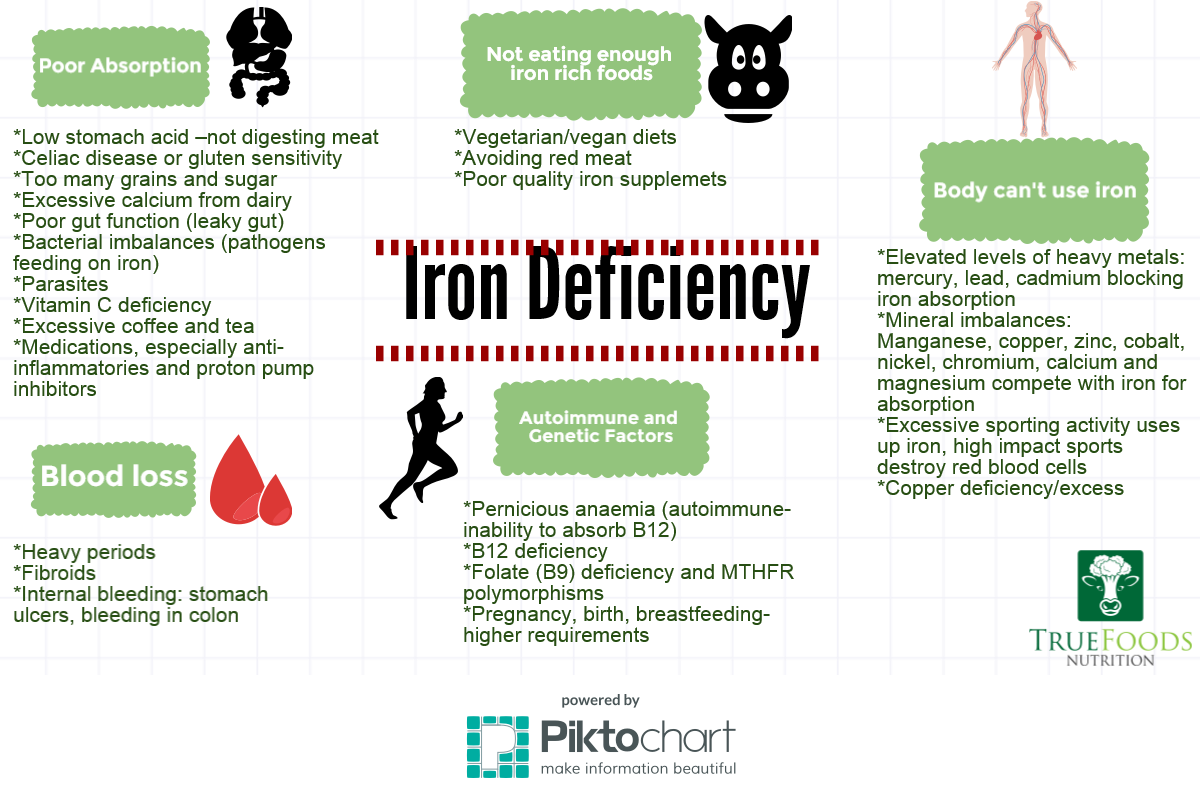
Causes of Low Iron and Iron Deficiency
10 most common causes of low iron I see in clinic:
1. Low stomach acid
These are the people who find meat ‘hard to digest’, as if it ‘just sits there for hours’. A sure sign that the level of your hydrochloric acid is inadequate to digest meat. Too many refined carbs and sugar in the diet can lower stomach acid levels, not to mention over the counter proton pump inhibitor medications, specifically designed to lower your acid levels!
2. Excessive calcium from dairy
This is really common in kids and adults alike. Calcium competes with iron for absorption and it’s excess is detrimental as the body needs all minerals in the right proportion. The double whammy here is women who are addicted to cappuccinos, chai lattes and flat whites: tannins from tea and coffee also significantly reduce iron absorption.
3. A big factor is unbalanced biochemistry
I regularly conduct hair mineral analysis and find that copper excess (extremely common) as well as elevated levels of metals like mercury and lead block iron from being absorbed. You can be eating all the meat you like (and maybe even digesting it!) but if you have heavy metal and copper toxicity, these will block iron absorption.
4. Vitamin C
Is required for proper iron absorption. Almost everyone is deficient in vitamin C! We simply do not eat enough fruit and veg.
5. Unbalanced gut flora
A large proportion of us has unbalanced gut flora (dysbiosis) from our hygiene focused lifestyle, lack of breastfeeding, poor diet and repeated administration of antibiotics. Pathogenic bacterial species feed on iron and zap our energy. Getting to the bottom of your gut function is critical to resolving your low iron issues.
6. B vitamin deficiency
Many are deficient in B group vitamins, especially folate (B9) and vitamin B12. Vitamin B12 deficiency takes up to 5 years to develop and is extremely common. By the time you experience symptoms like tingling in feet and hands, chances are you are already severely deficient. Unfortunately, the laboratory ranges on your blood test results are very broad, so unless you are severely deficient, the B12 level won’t be flagged on your report. These lab ranges grossly underestimate what the real levels of B12 need to be for optimal functioning. Read more about vitamin B12 deficiency here.
I regularly test people for MTHFR genetic polymorphism: those with this genetic characteristic cannot utilise and absorb folic acid that is commonly found in supplements and can have severe iron deficiency as a compounding factor.
7. Busy lifestyle
If you are exercising a lot, looking after children, working all day and have heavy periods – you need more iron!
8. Hormonal Imbalance
A lot of women and teenage girls experience heavy bleeding during menses and many have hormonal imbalances, especially relating to oestrogen. Our environment has been so polluted with xenoestrogens that unfortunately this problem is only likely to increase. Regulating periods and adjusting hormones is key to ensuring adequate iron.
9. Poor quality supplements
Poor quality iron supplements (the ones usually prescribed by your doctor unfortunately!) do not absorb well and cause constipation in many. Getting the right treatment is critical and many well absorbed iron supplements are available. Never supplement iron without having your levels checked and understanding the cause of deficiency.
10. Leaky gut
Finally – and this is a huge factor and very prevalent today – leaky gut (intestinal permeability)** caused by gluten intolerance in many and coeliac disease in some, means that iron absorption in the small intestine is severely impaired. This is one of the first factors to rule out on your journey of addressing low iron.
It is amazing what a difference in your health can be achieved once you address the root causes of your iron deficiency!
Iron Level Testing & A Plan To Rebuild Iron Stores
If you would like to get iron level testing done or for a personalised plan to increase your iron, book your consult with Nutritionist Maria to restore your health. Book Online Here.
Sources
*http://www.nhlbi.nih.gov/health/health-topics/topics/ida/signs
**Listen to a great podcast explaining why 75% of the world’s population experience negative effects from gluten here.

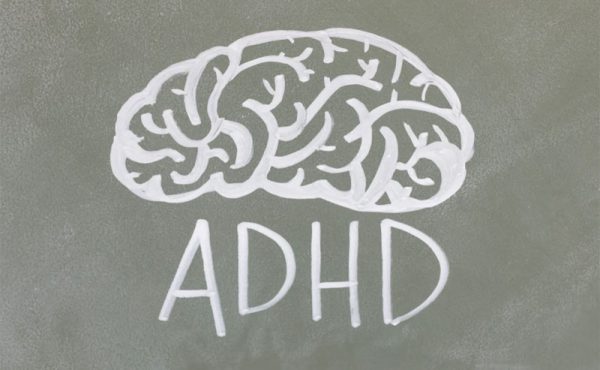

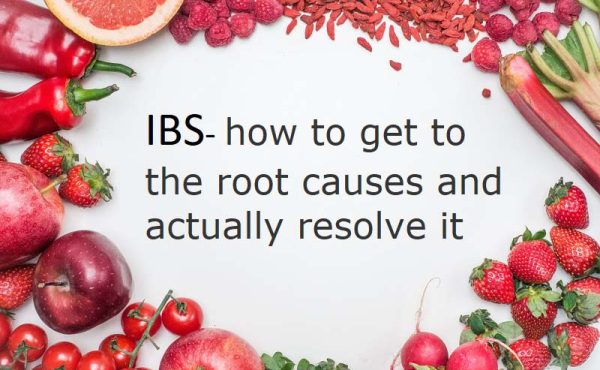



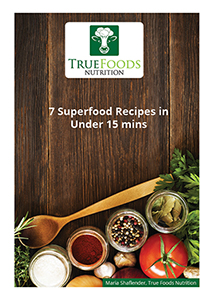
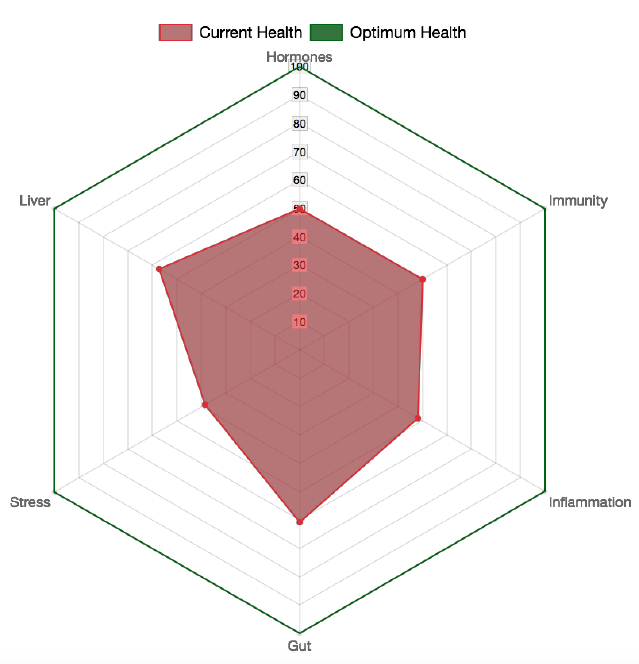


Great article, thanks! I’m a PT (physiotherapist) and functional medicine practitioner in the USA. I was just explaining to a friend with Hashimoto’s some possible reasons why she is anemic. Have you heard of Juice Plus? 30 different fruits and vegetables freeze dried in capsule form. It’s made all the difference in my own health journey.
Hi Maria,
“I regularly test people for MTHFR genetic polymorphism: those with this genetic characteristic cannot utilise and absorb folate (B9) and can have severe iron deficiency as a compounding factor”.
Folate? Didn’t you mean to write ‘Folic Acid’?
Regards,
Marc
yep correct thx Marc
My daughter had her iron level checked and it was 17. The range is 35-140. She is 20 months old and is a very picky eater. She loves sugar. My question is low iron will it cause her to have low red cell count of 3.54 and the range is 3.70-5.30 and a hct of 32.8 range is 33.0-39.0? Her hemoglobin was normal. Her MCV was high as well.
Hi Hannah,
Thanks for your question. This needs to be addressed through her diet and potentially supplementation. Feel free to book a free 15 min consult on my website to discuss. Thanks
Thanks for this excellent article. What is the remedy fir low iron if you have leaky gut and gluten intolerance? Thanks!
Thx Rebecca. Resolving leaky gut is imperative and I use various individualised treatments for that as well as easily absorbed iron supplements.
Wow Maria, this article really drove it home! As someone who has benefited from your advice so many times, I can also see how important proper consultation and big picture is to get to the root of the problem. You’ve inspired me to do what I need to get healthier. Thank you.